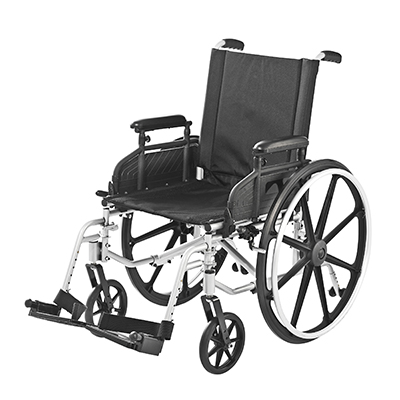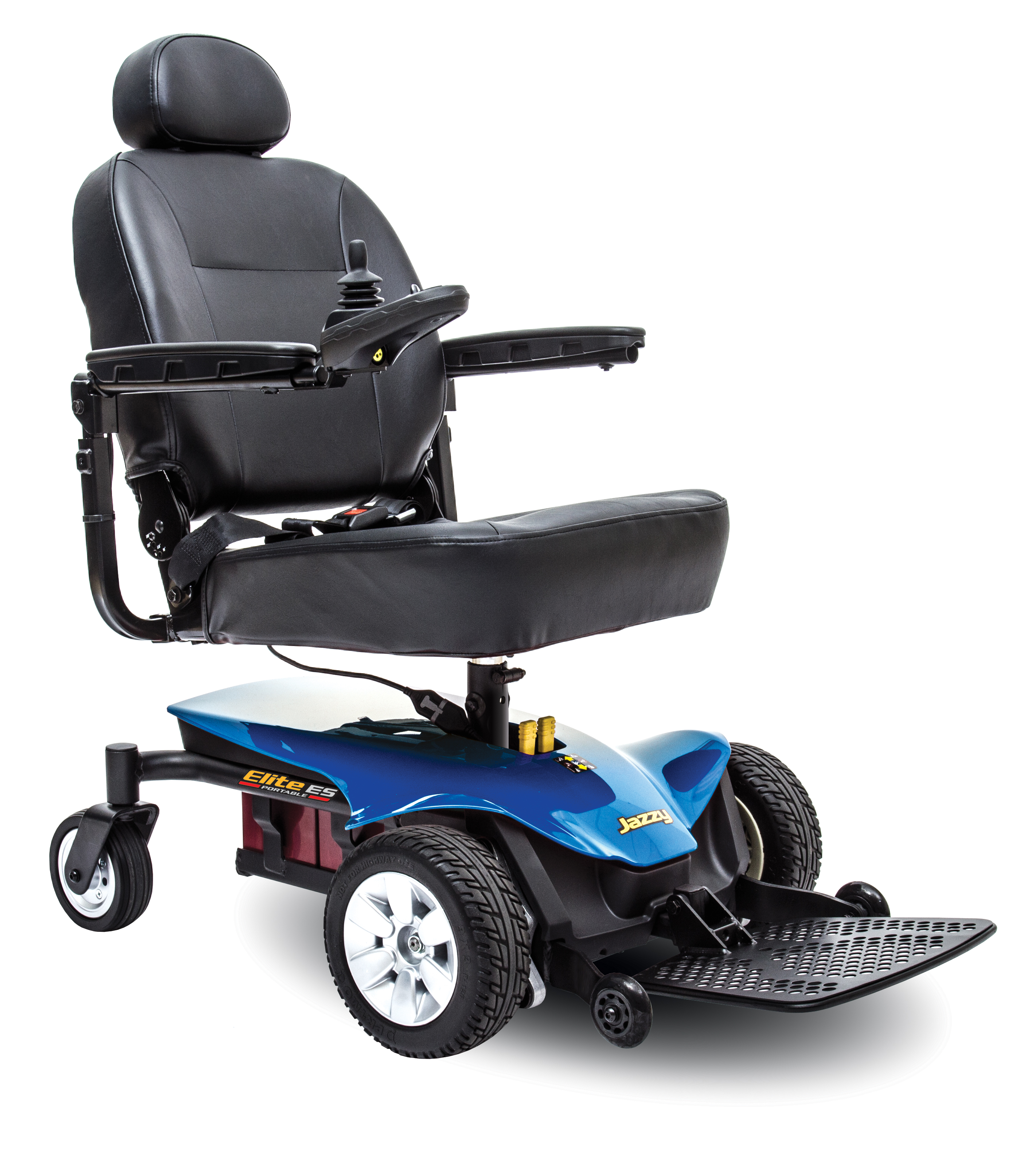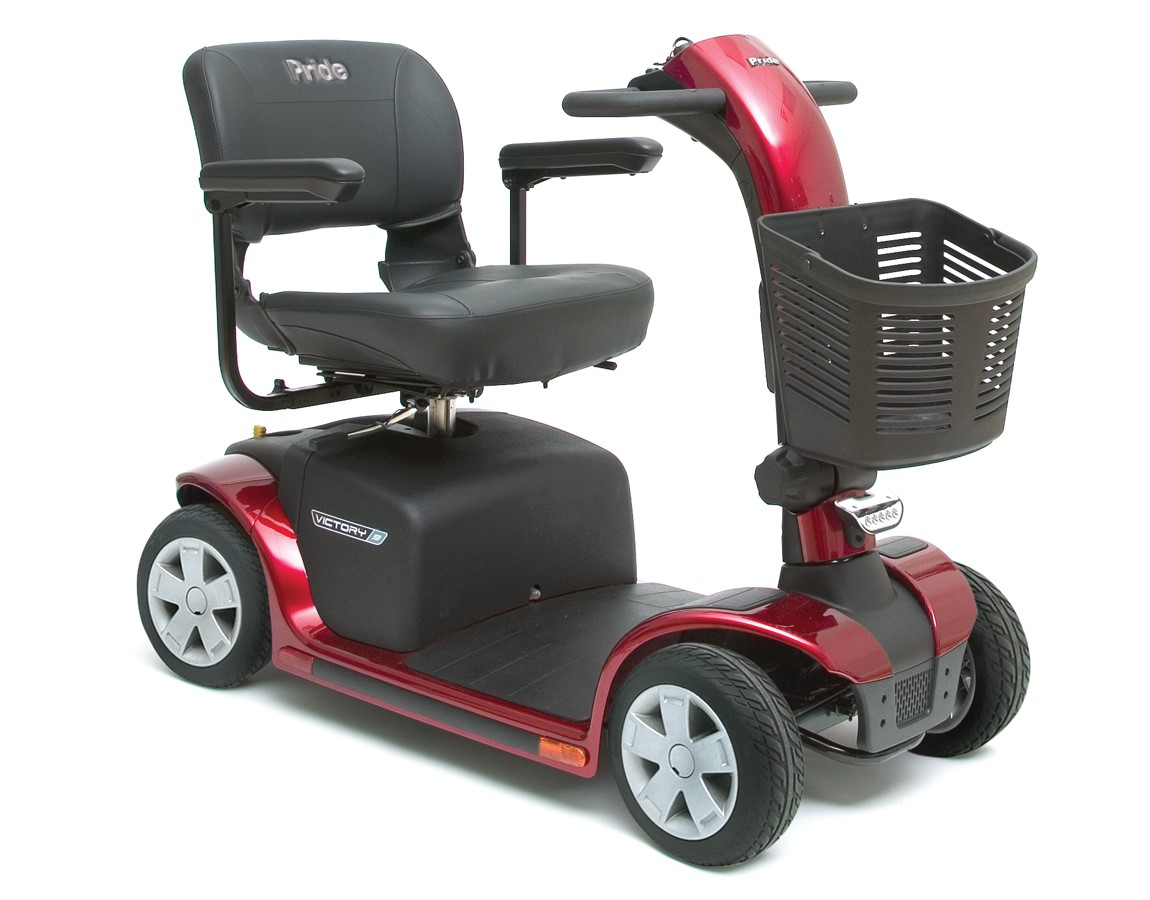
Manual wheelchairs require human power to move and come in two general designs – folding and rigid. Folding chairs are easier to transport and store. Rigid chairs require less energy to propel because of fewer flex points. These tend to be preferred by active users. Manual wheelchairs require adequate upper body strength and balance to propel. Accessories include: anti-tip bars, safety belts, adjustable brackets, tilt and/or recline features, extra support for limbs or neck, mounts or carrying devices for crutches, walkers, oxygen tanks, drink holders, clothing protectors.
Types of manual wheelchairs include:

Power wheelchairs are propelled by an electric motor rather than manual power and are useful for those who are unable to power the chair themselves or who have to travel long distances or over terrain that is difficult to traverse in a manual chair. They may be used not just by people with traditional mobility impairment but also by those with cardiovascular or fatigue-based conditions. The joystick used to operate power wheelchairs requires fine motor skills to control. Accessories include: anti-tip bars, safety belts, adjustable brackets, tilt and/or recline features, extra support for limbs or neck, mounts or carrying devices for crutches, walkers, oxygen tanks, drink holders, clothing protectors, canopies, etc.
Types of power wheelchairs include:

Scooters are electric powered and typically used by those who need extra help getting around. They generally have 3 or 4 wheels, a motor, battery pack, and raised seat. They are controlled by a handlebar, or tiller. These should be used by individuals who can keep their arms outstretched for long periods of time. Accessories include: baskets, pouches and bags, battery upgrades, cup holders, oxygen tank holders, walker, cane, and crutch holders, rear-view mirrors, canopies, etc.
Types of scooter types: